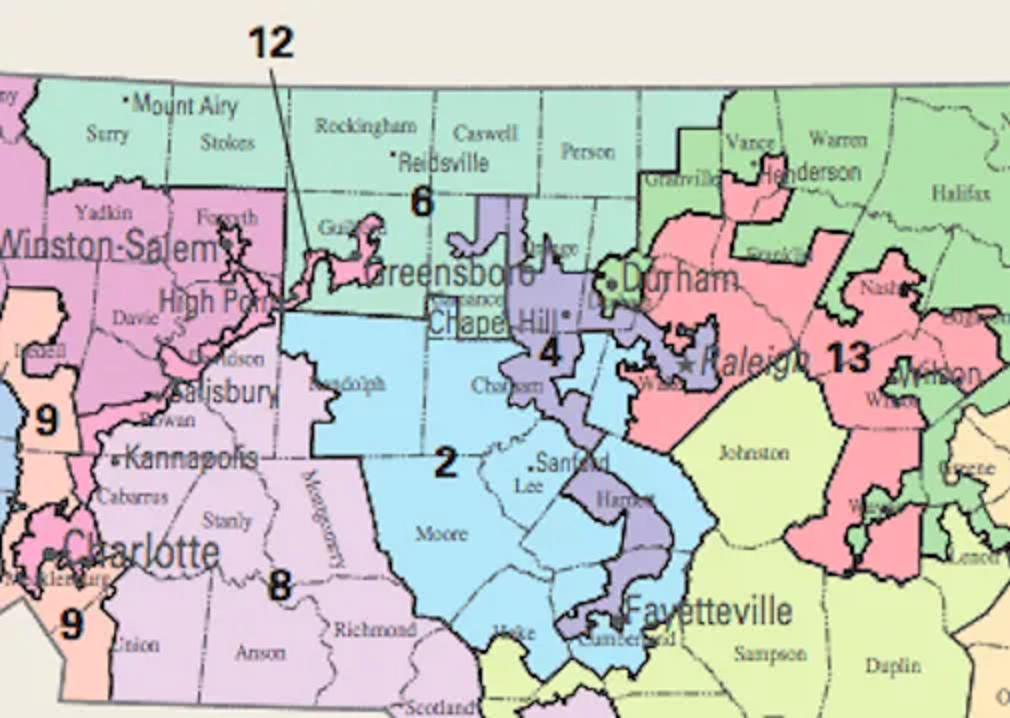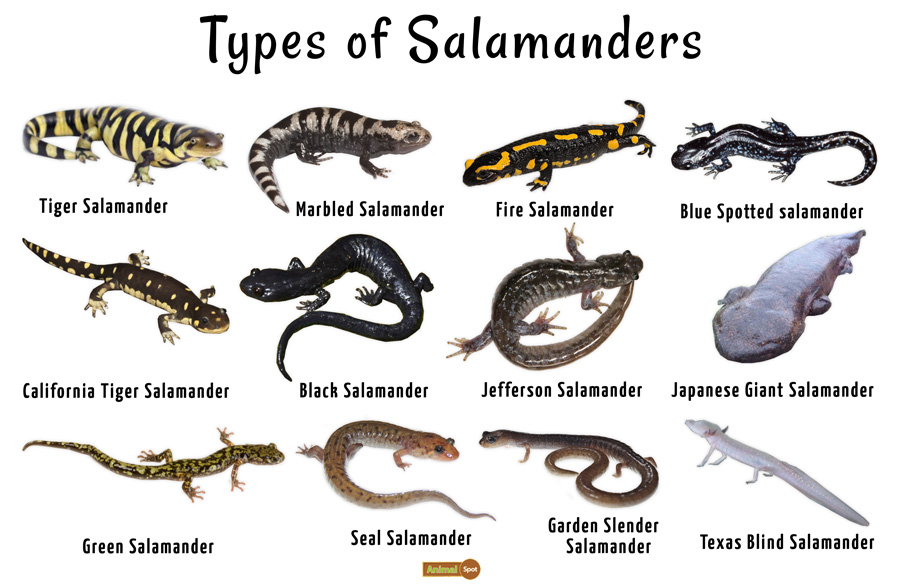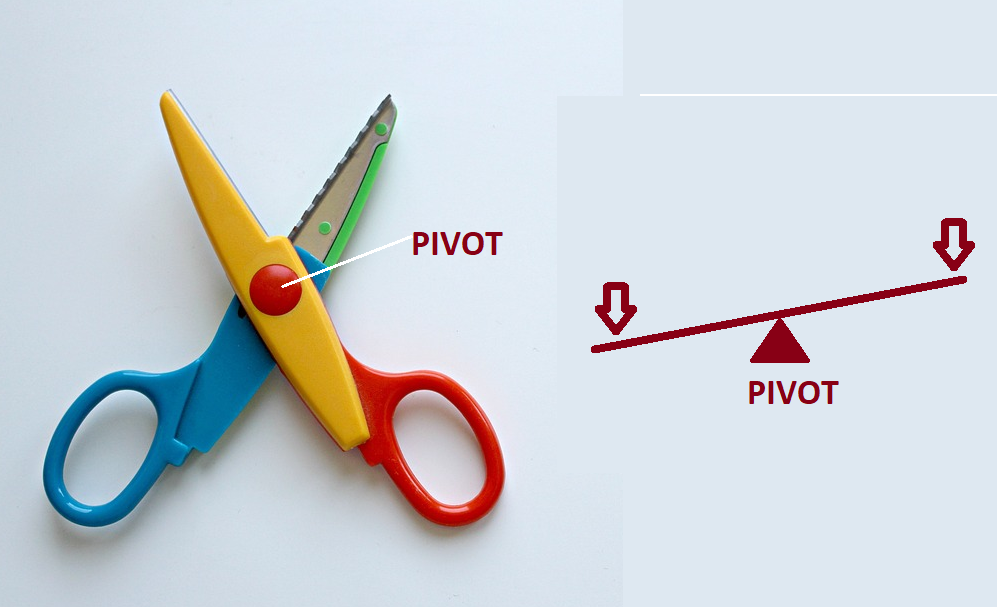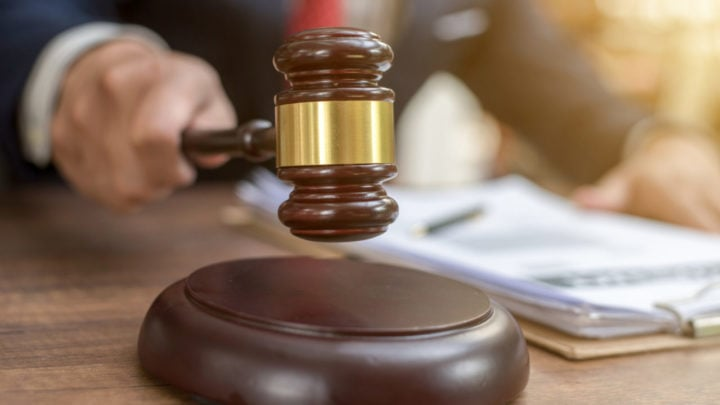TEXT
These elections are for Congress, which is made up of two parts – the House of Representatives and the Senate.
These votes are held every two years and when they fall in the middle of the president’s four-year term of office, they are called the midterms.
Congress makes nationwide laws. The House decides which laws are voted on while the Senate can block or approve them, confirm appointments made by the president and, more rarely, conduct any investigations against him.
Each state has two senators, who sit for six-year terms. Representatives serve for two years, and represent smaller districts.
All the seats in the House of Representatives are up for election in November, alongside one-third of the Senate.
Several major states also have elections for their governor and local officials.
Who might win?
The Democratic Party has held the majority in both the House and the Senate for the past two years. That’s been helpful for President Joe Biden to pass the laws he wanted.
But the Democrats hold that power over the Republicans by very narrow margins, which makes for a tight contest. Polling suggests the Republicans might take the House but the Democrats could hold on to the Senate.
Capitol
Of the 435 seats in the House, most are safely held by either party, with just 30 currently a toss-up between the two. Suburban areas around cities in states like Pennsylvania, California, Ohio and North Carolina will be key.
In the Senate, it now looks like four of the 35 seats being contested realistically could go either way. The pivotal races here are in Nevada, Arizona, Georgia and Pennsylvania.
What are the big issues?
At the start of 2022, it looked like the biggest issues were going to be immigration, crime and the cost of living, which are vote-winners for conservative Republicans.
That changed in June when the US Supreme Court overturned national abortion protections, giving a boost to the Democrats, who support women having the right to choose and have made that central to many campaigns.
But as the immediate impact of that decision fades, Republicans are trying to turn the focus back to inflation, immigration and violent crime.
What effect will the results have?
Midterms often serve as a verdict on how the president is doing, and the party that holds the White House tends to lose seats.
That’s a worry for President Biden, whose approval rating among voters has been running at less than 50% since last August.
If the Democrats hang on, President Biden will be able to keep going with his plans on climate change, to expand government-run healthcare programs, protect abortion rights and tighten gun control.
If the Republicans take control of either chamber, they will be able to effectively grind that agenda to a halt.
They will also be able to control investigatory committees, so they could end the inquiry into the 6 January 2021 attack on the US Capitol by supporters of former President Donald Trump – although its work is set to finish by the end of the year.
They might also launch new investigations into more conservative-interest topics – like the Chinese business dealings of Joe Biden’s son or the sudden withdrawal of US troops from Afghanistan.
It would be harder for Mr Biden to make new appointments, including to the US Supreme Court. Republican dominance would also hamper his foreign policy – particularly help for Ukraine, as it battles Russian invasion.
In return, President Biden could wield his veto pen and block conservative laws on abortion, immigration and taxes.
The result? Gridlock until the next presidential and congressional elections.
How does this shape the 2024 presidential race?
The midterms could give us a clue as to who might be in the running to be the Republican presidential candidate for 2024.
If candidates backed by Mr Trump do badly, he’s less likely to get backing from the Republican party to run for president again. In Florida and Texas, Republican governors Ron DeSantis and Greg Abbott hope re-election will spur them on to a bid for the White House.
If the Democrats can hold on to power in Michigan, Wisconsin and Pennsylvania, that should give them some confidence as they build their 2024 campaign to get President Biden re-elected.
RELATED LINKS
EXPRESSIONS
Could turn either way: Could be a win for one party or the other.
Hang on: 1. Cling to the position 2. Wait a short time. 3. Listen attentively
Grind that agenda to a halt: To stop it
Use the veto pen: Use the power to refuse (The US President has the power to refuse a law approved by Congress. Congress can override this power by a majority of 2/3.
GRAMMAR
Noun compounds
Complete the following sentences with a noun compound formed by the two italicized nouns. The compounds consist of one word or two, as shown by the blanks.
Rules: Open, closed, or hyphenated
Examples: A small boat saved his life. It was a lifeboat.
The streetlights were off, but he could see by the light of the moon. The street was lit up by the moonlight.
He raises chickens on his farm. He has a chicken farm.
1. He deposited the mail in the box. He put the letters in the — mailbox –.
2. The man holding the door is the — doorman –.
3. He went into the store to buy some shoes. He went into the — shoestore –.
4. She drank some tea from the cup. She drank from the — teacup –.
5. Just throw any waste paper in this basket. It’s a — wastebasket –.
6. That man has the highest sales record. He’s the best — saleman –. in the
company.
7. Mary bought a shade for the lamp. She bought a — lampshade –.
8. He likes to go sailing in his boat. He has a — sailboat –.
9. Her watch fell off her wrist. She lost her — wristwatch –.
10. This store has a number of different departments. It’s a — department store –.
11. The bells of the church rang out. I heard the — church bells –.–.
12. We need some more wax for this floor. We need some — floor wax –.
13. She was carrying the hat in a box. She was carrying a — hatbox –.
14. He gave her a ring for their engagement. He gave her an — engagement ring –.
15. Does that train carry passengers? Yes, it’s a — passenger train –.
16. I got these books from the library. These are — library books –.
17. Mr. Evans bought a collar for his dog. He bought a — dog collar –.
18. This paper appears in the evening. It’s an — evening paper –.
19. You wear these shoes when you go bowling. These are — bowling shoes —
20. I can’t fasten this button for my collar. Please help with — collar button –.
21. I need a coat to wear in the rain. I’ll have to buy a — raincoat –.
22. Do you have a list of your prices? I’d like to see your — price list –.
SPEAKING PRACTICE
Talk about an election system that you know.









